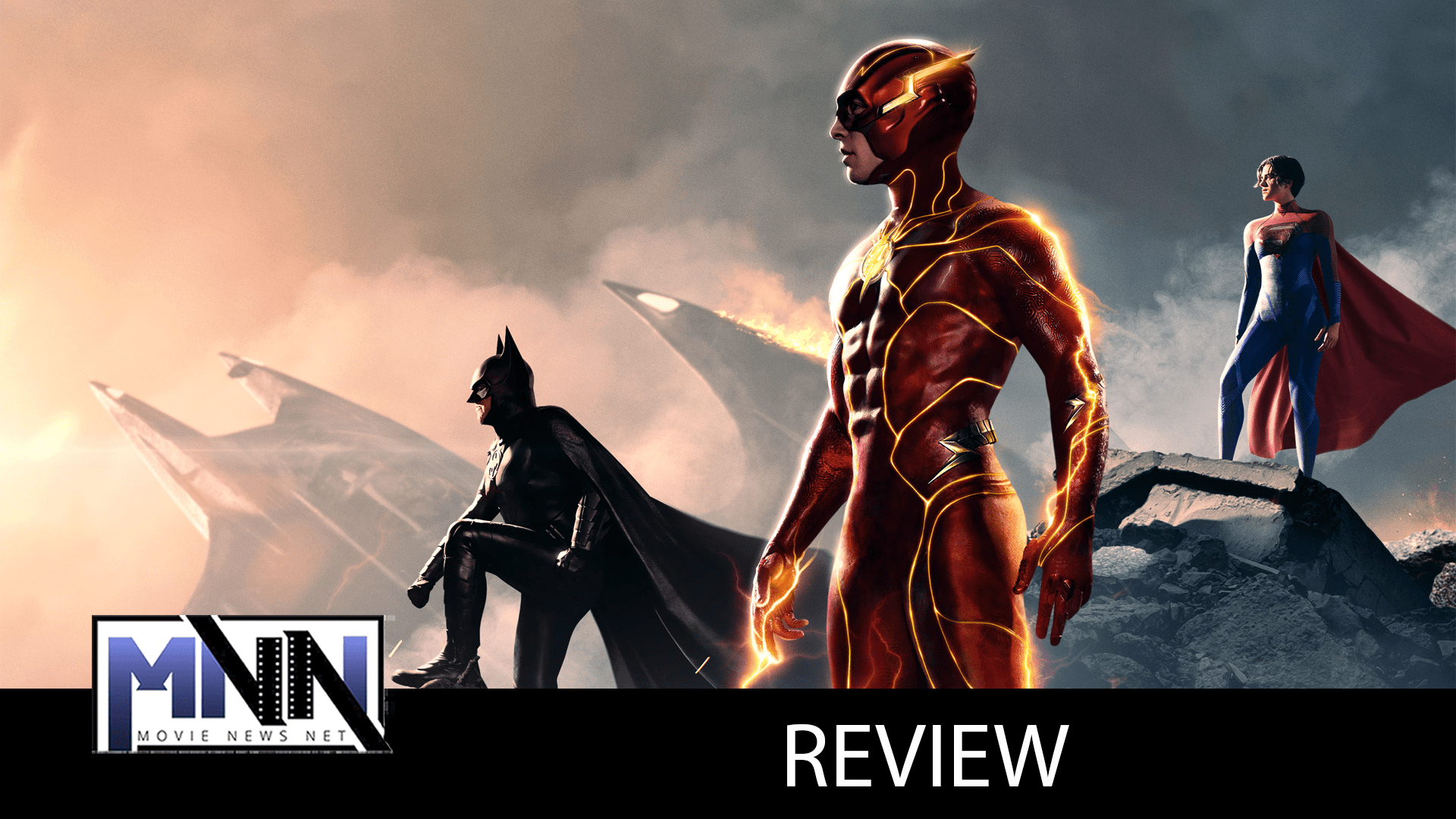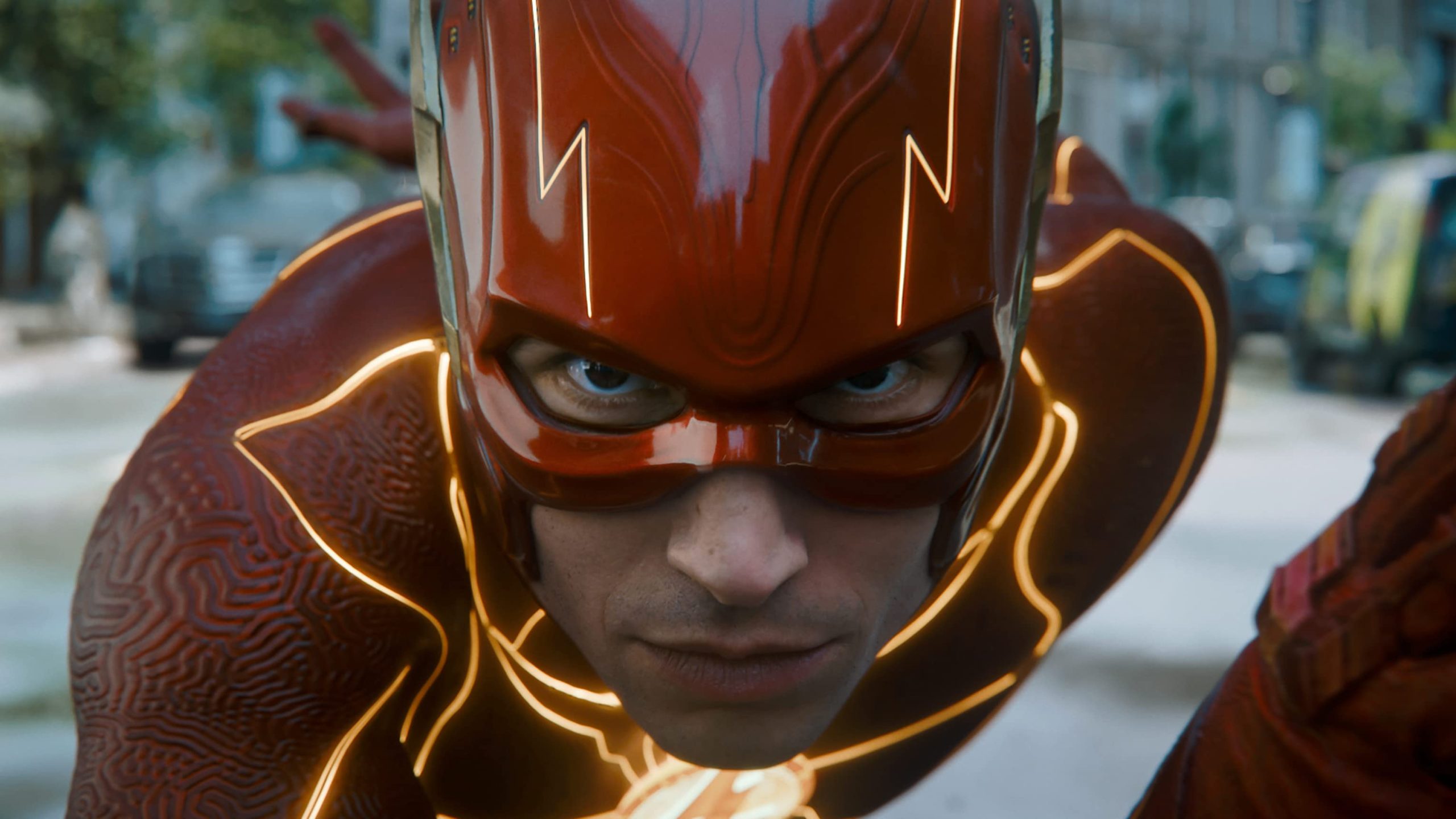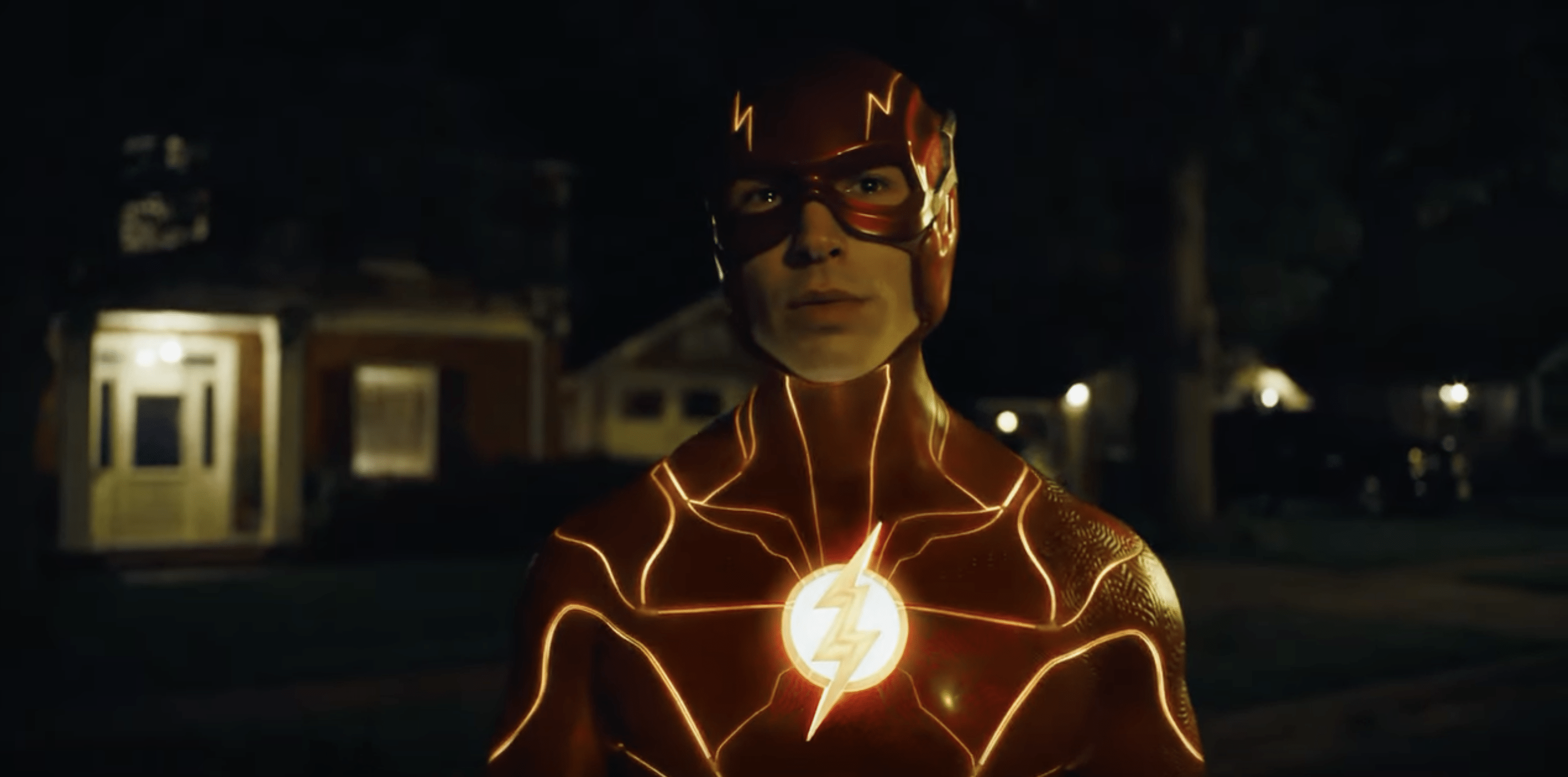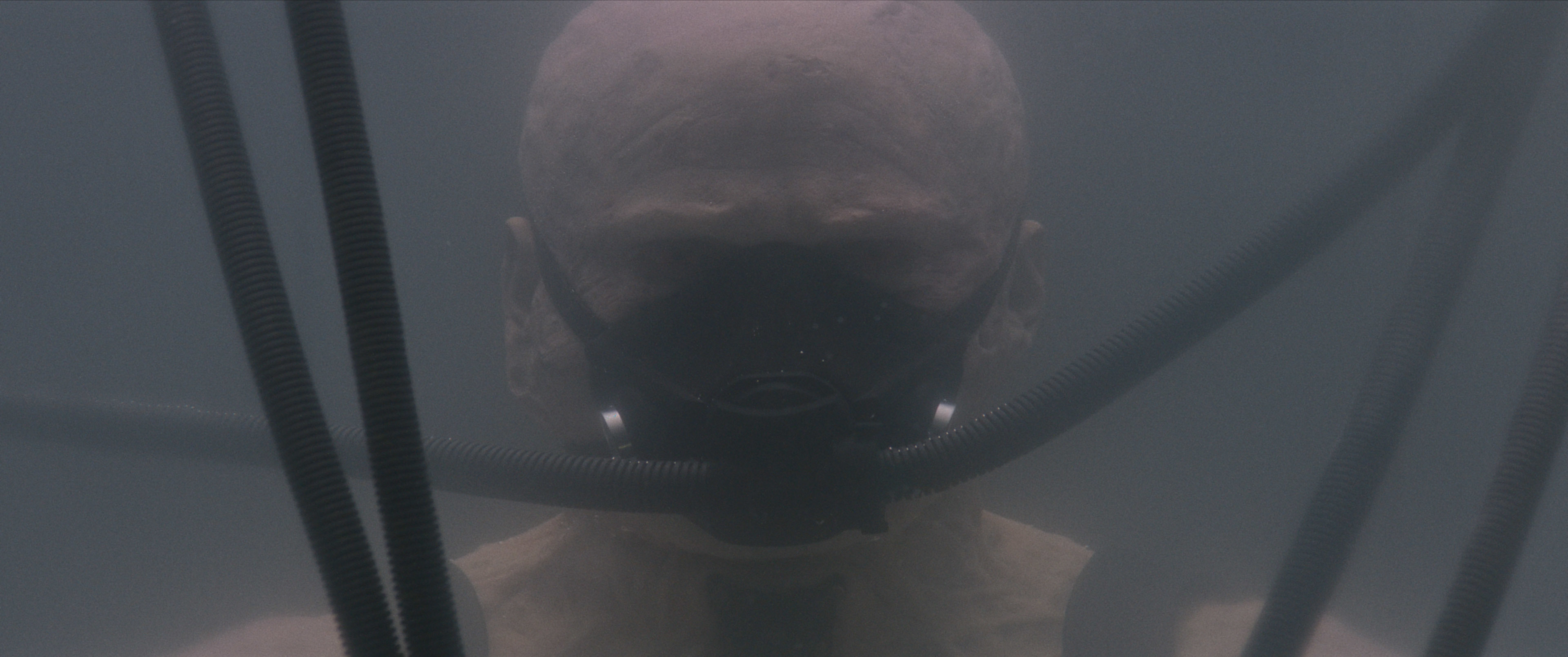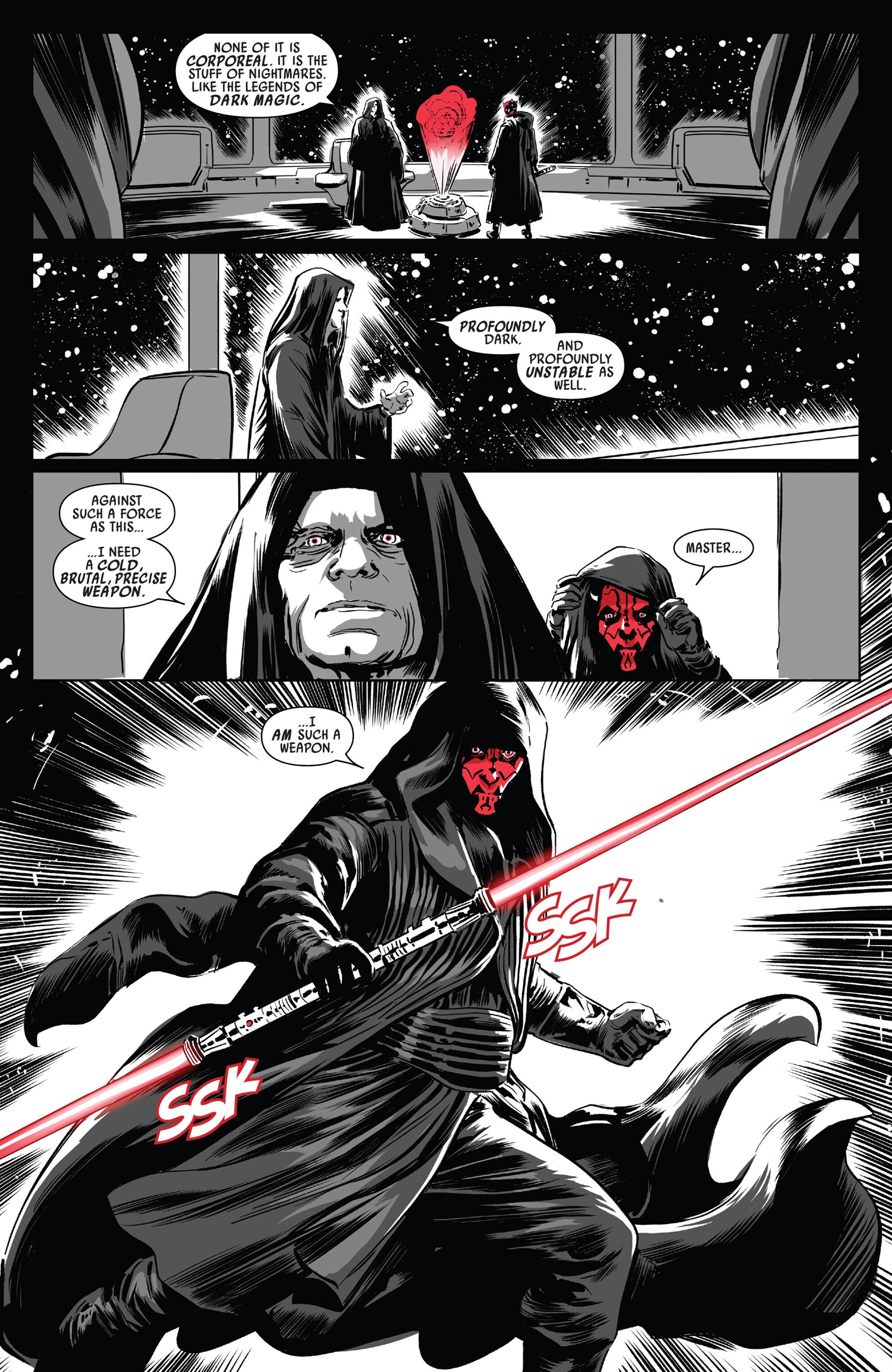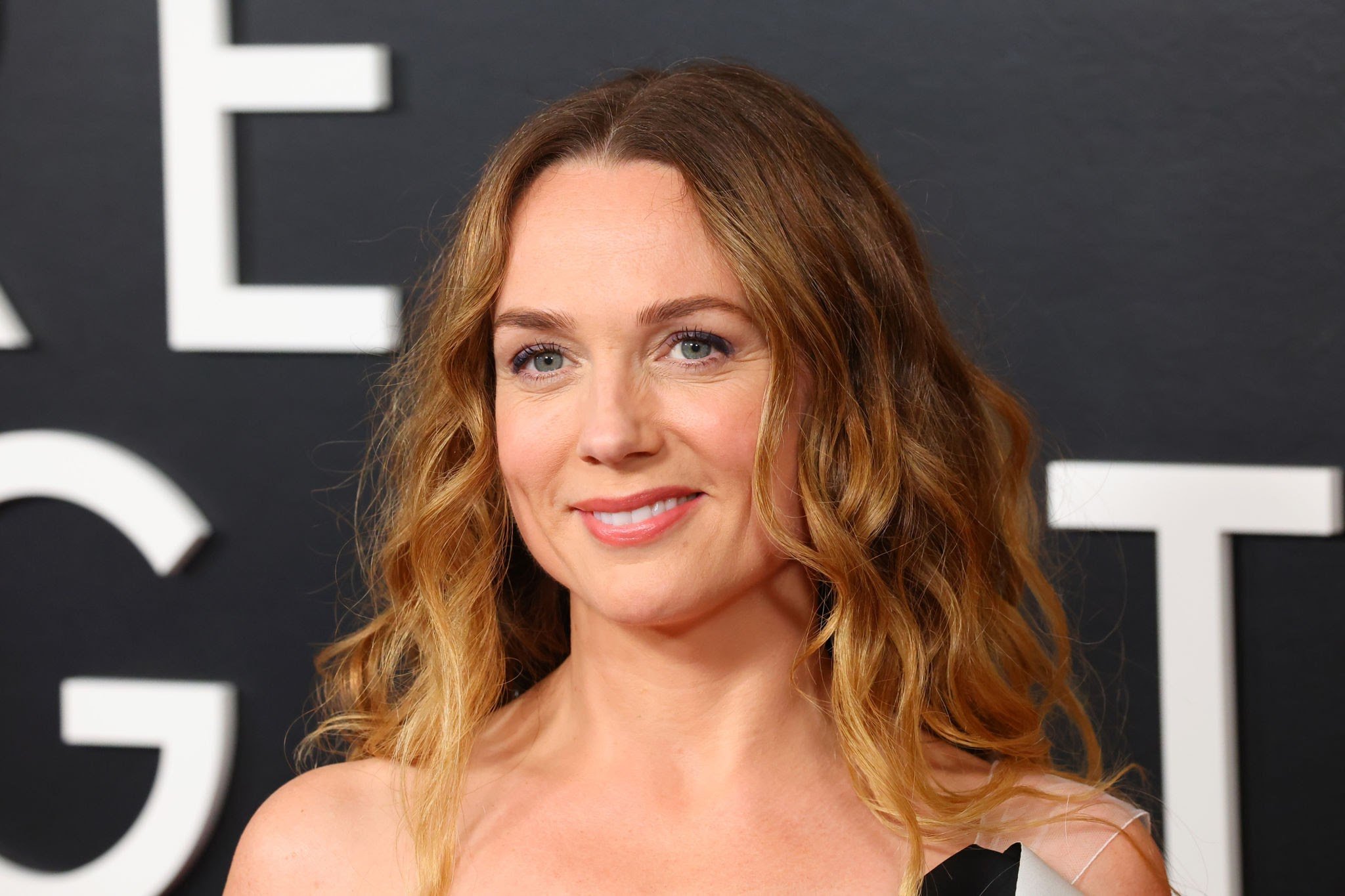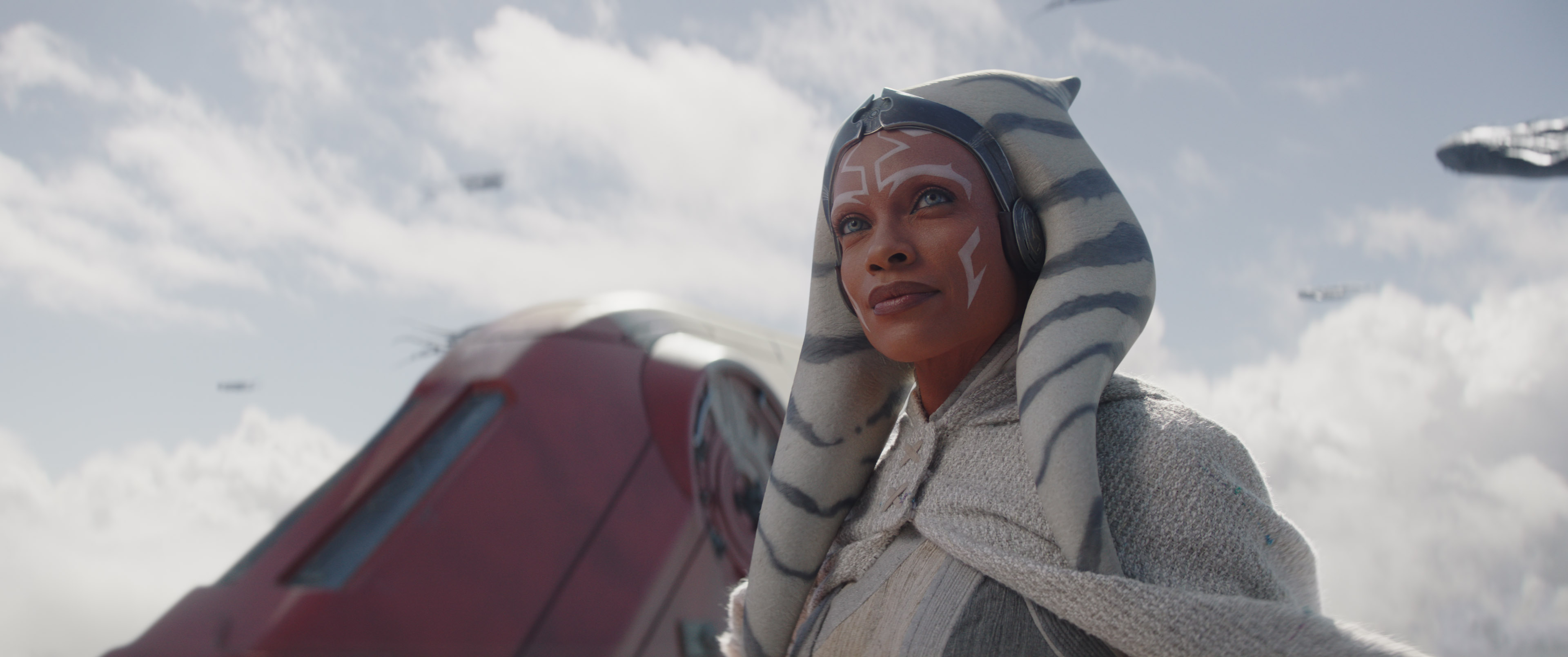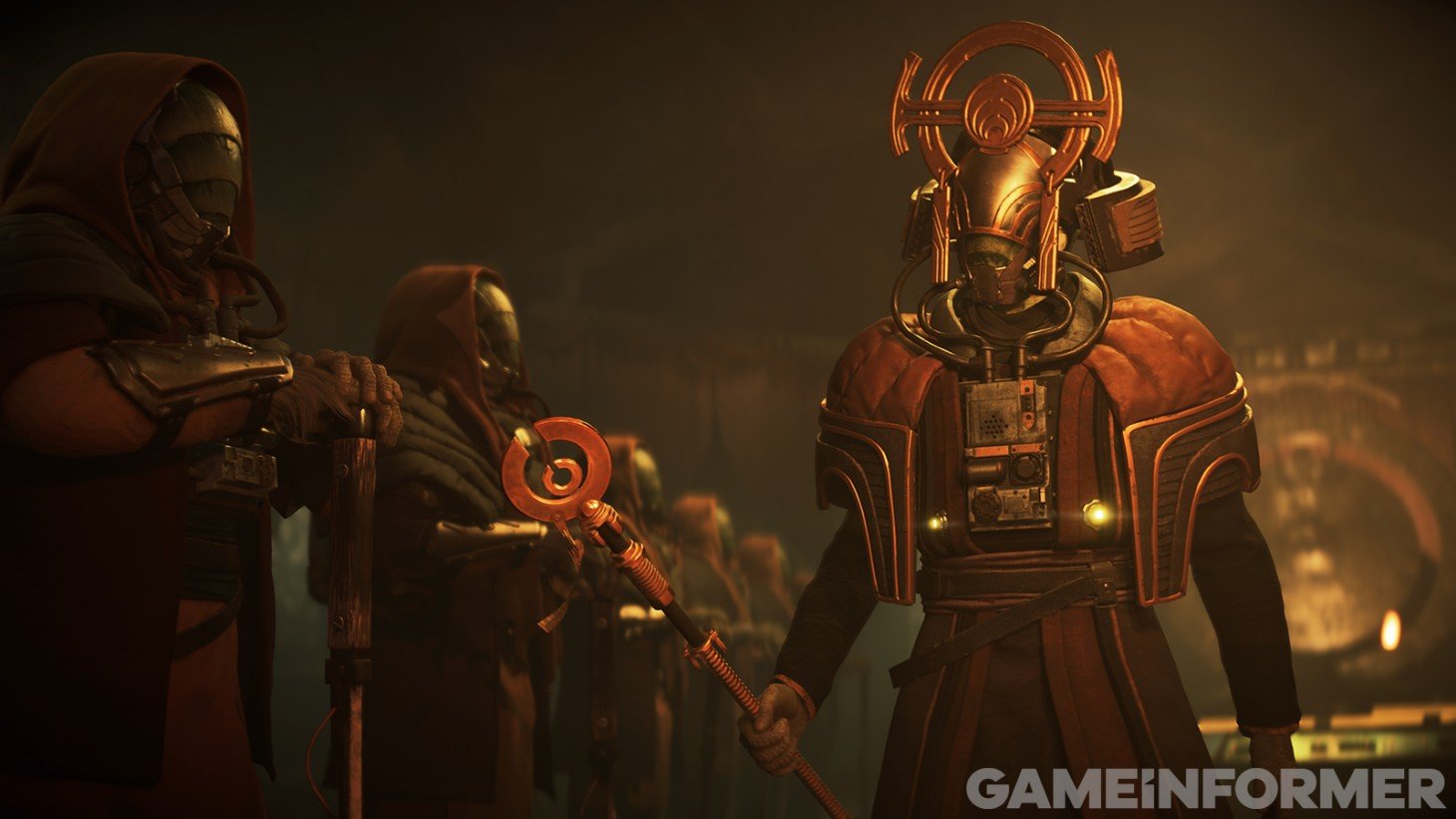‘The Flash’ Review: Nostalgia and an Over-The-Top Tone Prevent DC’s Latest From Soaring
The Flash, both the character and the movie, have a real problem with nostalgia. They think that to move on it is vital to revisit the past to try to rework it and make an ideal alternative possibility fit inside today’s world. But in doing that they come across major problems and become too distracted from their mission.
Rian Johnson tried to warn us of this problem years ago through the character of Kylo Ren in The Last Jedi: “Let the past die. Kill it if you have to.” It’s a lesson that Hollywood still hasn’t learned, convinced that all people care about is a cheap reminder of what their childhood movies and their heroes looked and sounded like. What if we could bring the past back just for a couple of hours? In doing so, the industry has forgotten that those movies thrived because they focused on telling their own story instead of revisiting what had come before it.
The Flash, though (now the movie), is split into two stories, one that focuses on Barry Allen’s (Ezra Miller) journey as he realizes he may be able to alter past events and save his mother from dying (and by extension, his father from going to prison), and another focused on revisiting elements from DC’s past, namely Michael Keaton’s Batman. That Tim Burton’s films had a deep impact on director Andy Muschietti and screenwriter Christina Hodson goes without saying, not only because they brought back the actor and made him a central player in the story, but also because the tone of the film could be described as 1989’s Batman made by Marvel Studios.
This is established early on through an opening sequence so campy and over-the-top I almost walked out of the theater in fear the rest of the film would not pick up from there. Thankfully, the tone stabilizes a bit after that and it doesn’t quite reach the same levels of cheese, with perhaps a few exceptions throughout. The heart of the story is Barry’s willingness to bring back his mother from the dead, one steeped in raw emotion and that adheres to the two pivotal questions in any good character arc: What does the character want? (To have a normal life with his mother and father) and what does the character need? (To realize that he is a complete human being and that his past should not define his future.)
As a well-constructed story does, Barry gets two companions that will help him solve those two conflicts and bring them to a shared resolution. Ben Affleck’s Bruce Wayne essentially tells him the answer that he needs at the beginning of the film, which is kind of perfect because, in a way, Batman was born out of a similar experience. But Barry won’t listen to him, and he takes matters into his own hands, traveling to a world where he meets another Barry Allen that grew up with both of his parents, something that will be pivotal to exploring the first question above. What worked here too is that this other Barry is younger and much more annoying than even older Barry is. Older Barry then will act as a mentor figure to younger Barry, who serves as a mirror to him. Of course, had Barry listened to Bruce, it all would have been fine; part of his arc is then that he must learn to listen to the people around him that may know better (something he, after growing up without his parents, never really learned). His interactions with younger Barry are the answer to that problem.
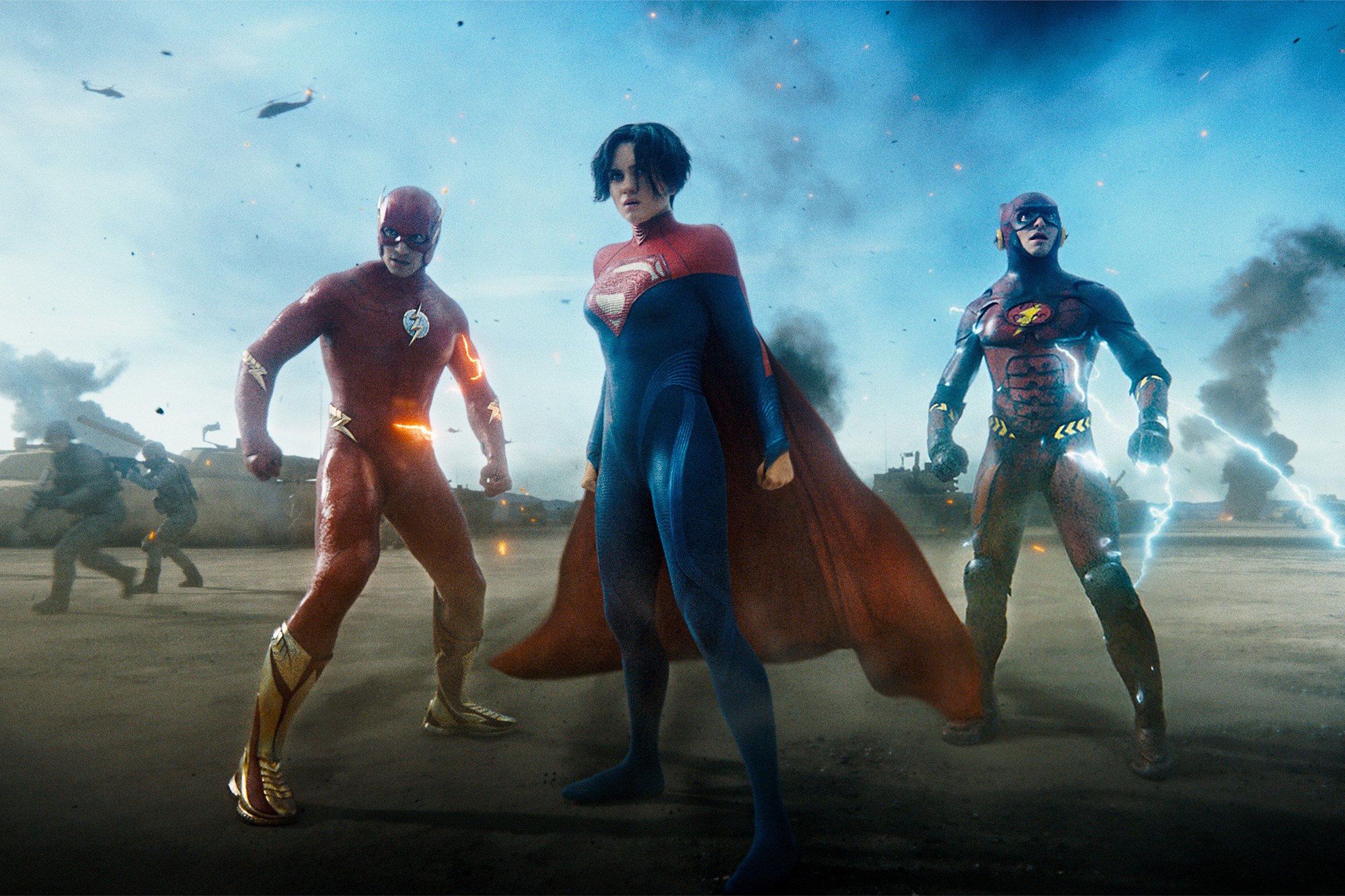
THE FLASH
(L-R) EZRA MILLER as Barry Allen/The Flash, SASHA CALLE as Kara Zor-El/Supergirl and EZRA MILLER as Barry Allen/The Flash in Warner Bros. Pictures’ action adventure “THE FLASH,” a Warner Bros. Pictures release.
Photo Credit: Courtesy of Warner Bros. Pictures/™ & © DC Comics
The dynamics get more interesting here as they both find Michael Keaton’s Batman, who in a way could have been Ben Affleck’s mentor. However, despite one scene where Barry and Bruce sit down and discuss what is going on with him, Keaton’s inclusion in the film doesn’t really feel earned; it feels like cheap nostalgia, with audience-popping lines like “You wanna get nuts?” or “I’m Batman”. There is nothing inherently wrong with that approach, but the script failed to make him an actual character, other than in that one scene. And that applies to other people in the movie too.
The main problem with The Flash is that it is purely plot-driven. Characters are always chasing McGuffins, though in this case, they are not necessarily objects. The movie thrives whenever two people sit down and have a conversation, namely the two Barrys, but it works with other combos as well. However, the story is focused for the most part on advancing the plot, because there is always something else the characters have to do. And this can work well for Indiana Jones but in a movie like The Flash, where the filmmakers are trying to get an investment from the audience through the emotional arc of its main character, it causes a problem, because the actual story of the characters is relegated to second or third place of priorities. This results in an overall unfocused movie, which is always moving but has a hard time stopping to look around every once in a while.
In Keaton’s Earth, there is no Superman. Instead, it was Kal-El’s cousin, Kara, who landed on Earth. She is played by Sasha Calle in the film, who provided the character with such stoicism and pure will that it is hard not to get behind her. Unfortunately, her screen time is much more limited than it should have been. In a way, this was also necessary to keep a consistent tone throughout the film, because Calle, who brings a lot of weight to the character of Supergirl, is in an entirely different movie — one much more serious and stripped down of all the corniness that came with Keaton and mostly Flash. (It’s different being corny and being joke-filled — see: Spider-Man: No Way Home, which was very funny but also understood the assignment perfectly.)
Overall, The Flash is targeting a specific audience, and I just wasn’t part of that group. The emotional beats of the film do work, particularly the conclusion of the third act — which also happens right before a very underwhelming epilogue that comes close to undoing Barry’s entire arc. But the film/character is too hung up on (DC) nostalgia, which prevents it from evolving into the story/person it could become.
The Flash is currently playing in movie theaters worldwide.
Miguel Fernández is a Spanish student that has movies as his second passion in life. His favorite movie of all time is The Lord of the Rings, but he is also a huge Star Wars fan. However, fantasy movies are not his only cup of tea, as authors like Scorsese, Fincher, Kubrick or Hitchcock have been an obsession for him since he started to understand the language of filmmaking. He is that guy who will watch a black and white movie, just because it is in black and white.

